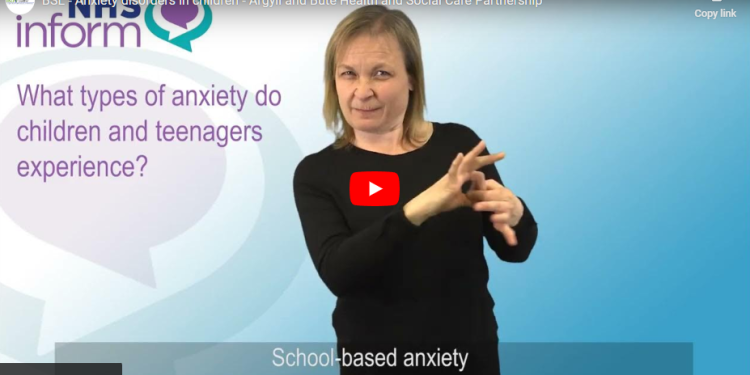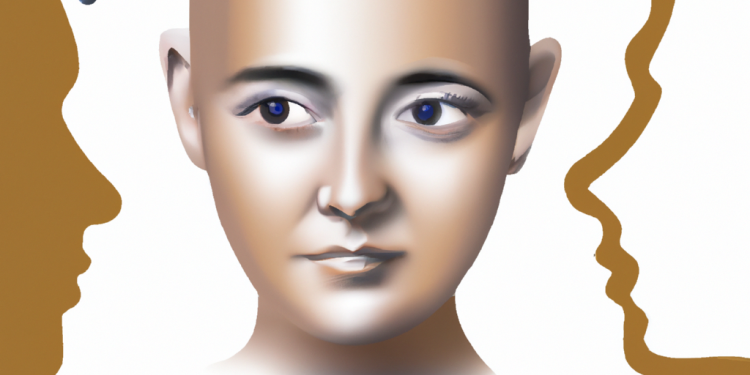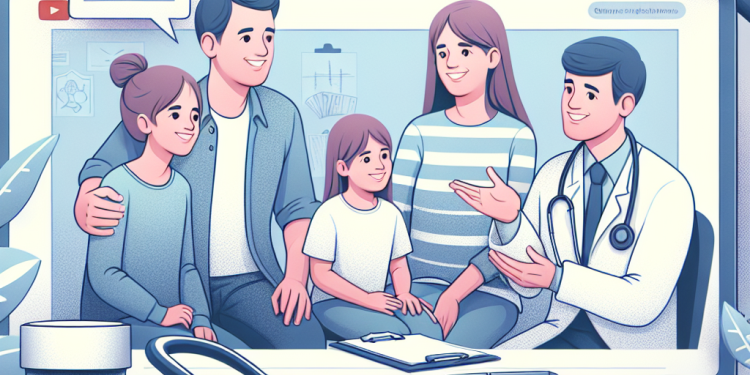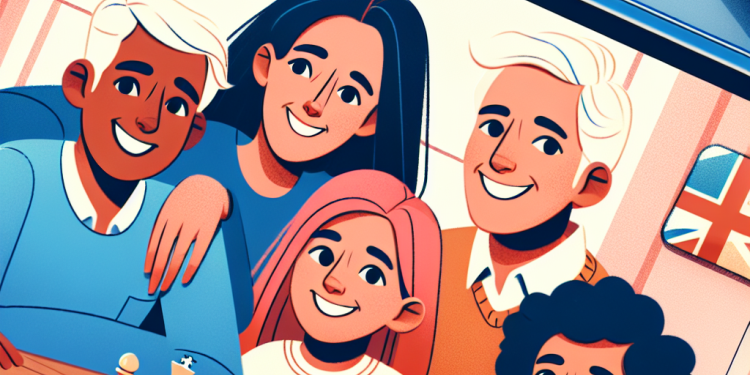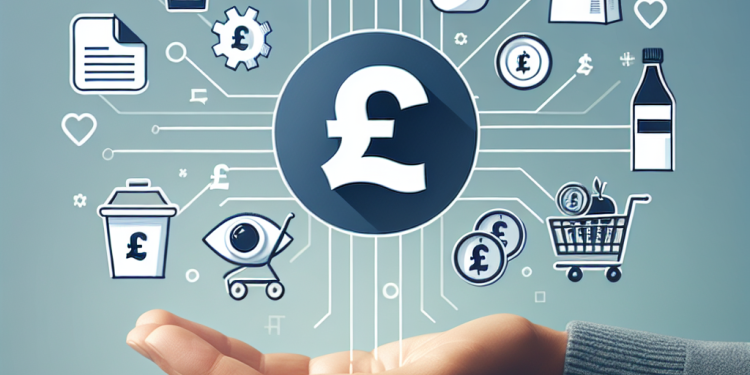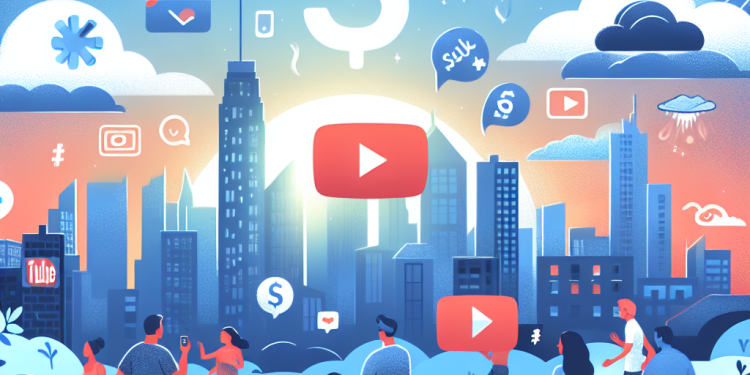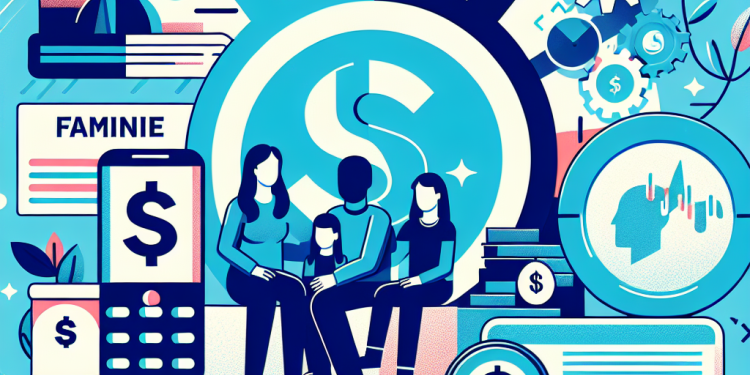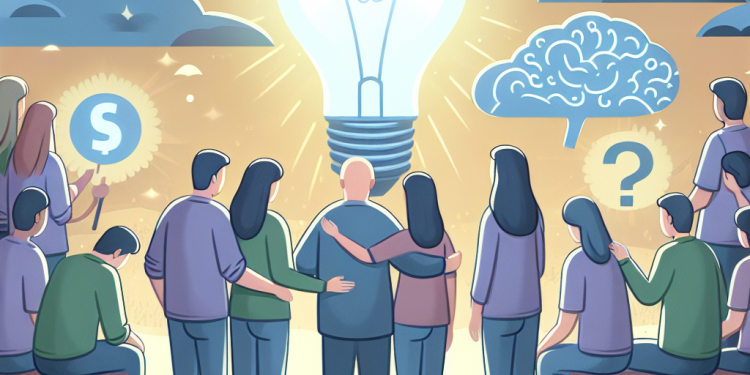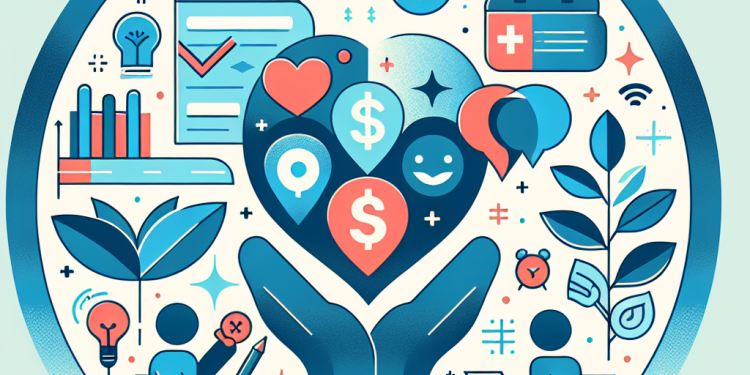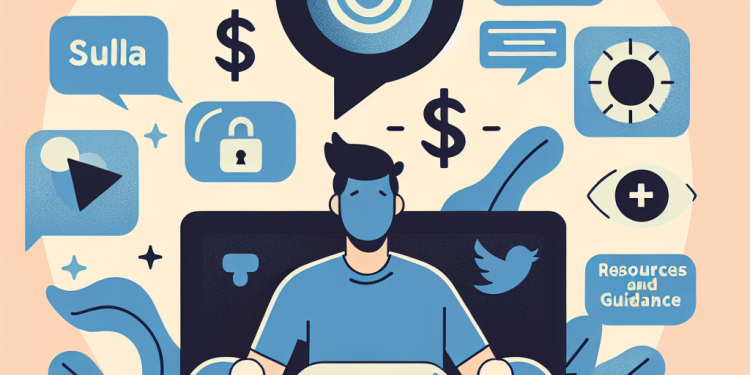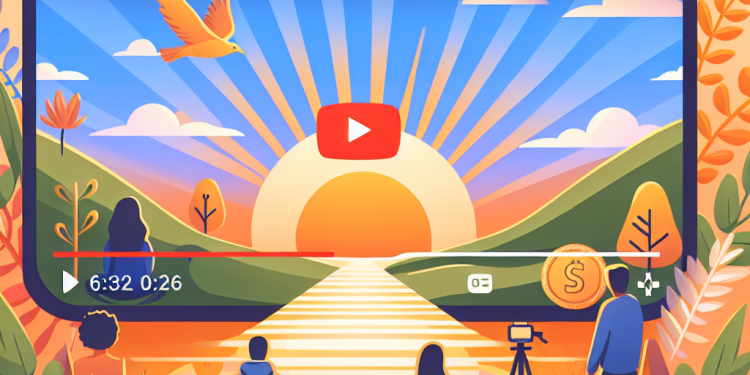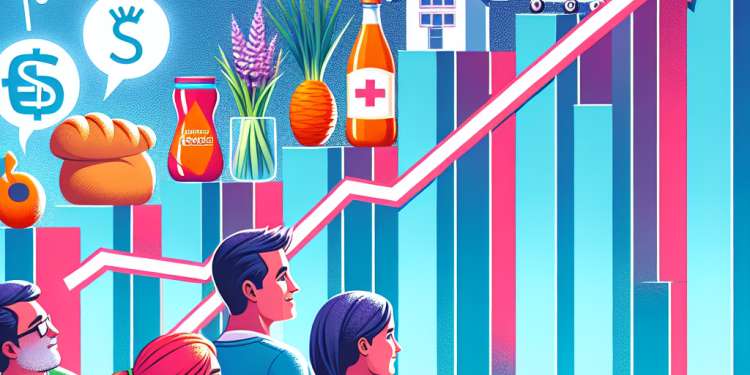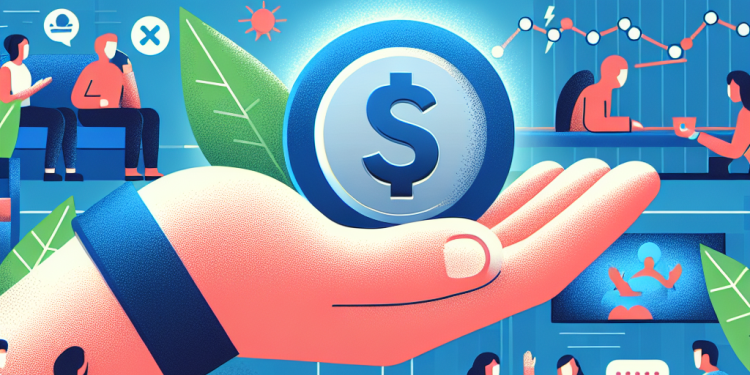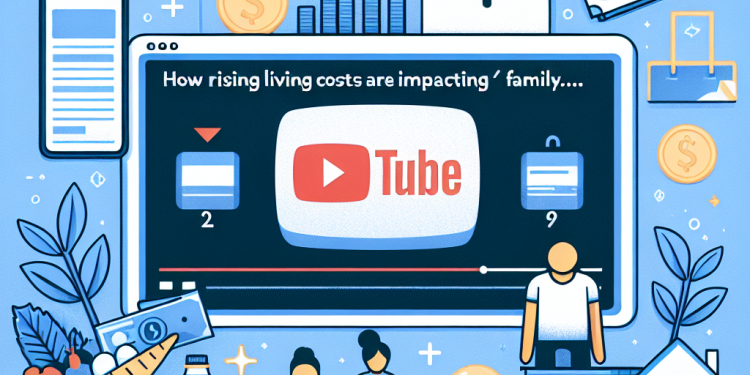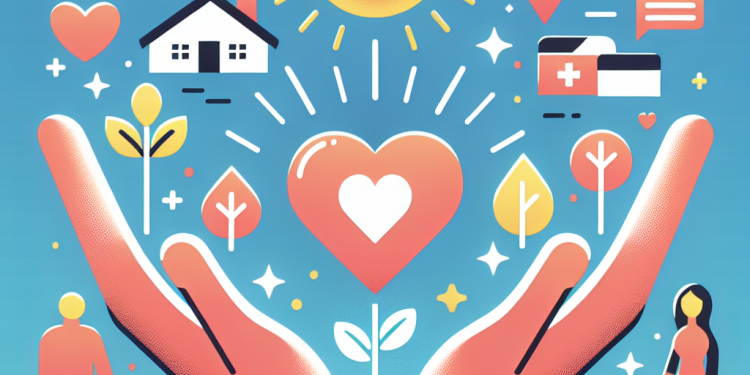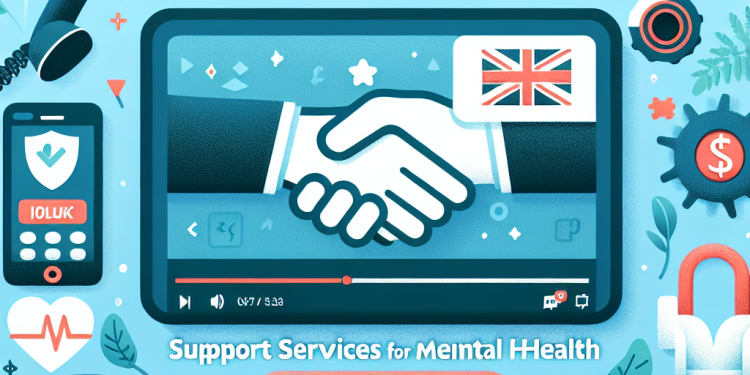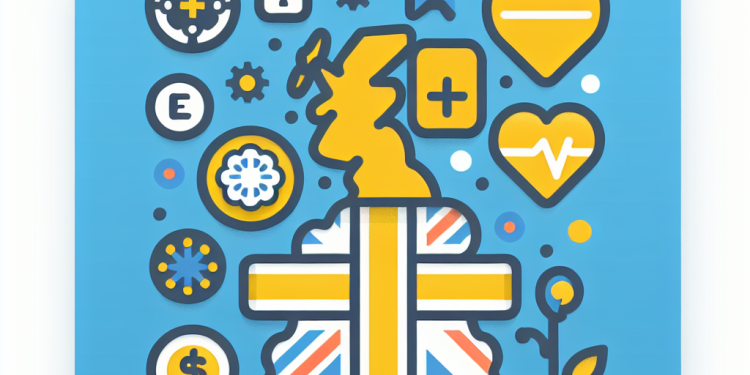
Find A Professional
Accessing Mental Health Support Resources in the UK
Understanding the Importance of Mental Health
Mental health is an integral part of our overall well-being, affecting how we think, feel, and act. In the UK, mental health support has become increasingly prioritized with various resources available to help individuals lead fulfilling lives. Understanding how to access these resources can be life-changing for those experiencing mental health issues.
NHS Mental Health Services
The National Health Service (NHS) provides comprehensive mental health services accessible through general practitioners (GPs). GPs can offer initial assessments, prescribe medication, and refer individuals to specialized services. Community Mental Health Teams (CMHTs) and NHS Improving Access to Psychological Therapies (IAPT) programs are some examples of free NHS services that provide counseling, therapy, and support for various mental health conditions.
Charities and Non-Profit Organizations
Several charities and non-profit organizations in the UK offer valuable mental health support. Mind, SANE, and the Samaritans provide helplines, online resources, and face-to-face counseling. Organizations like CALM (Campaign Against Living Miserably) focus on specific demographics, such as men under 45, who statistically have higher rates of suicide. These entities often offer free or low-cost services to ensure accessibility for everyone.
Employee Assistance Programs (EAP)
Many UK employers offer Employee Assistance Programs (EAP) to support their employees' mental well-being. These programs typically provide confidential counseling services, mental health assessments, and stress management workshops. Employees can access these resources without cost and with high confidentiality, making it easier to seek help without stigma or fear of judgment.
Online Resources and Apps
With the rise of digital technology, several online platforms and mobile apps have been developed to support mental health. Websites like Mental Health Foundation and apps like Headspace and Calm offer a variety of resources, including guided meditations, mental health tracking, and online counseling services. These tools are particularly useful for those who prefer remote assistance or need support outside of traditional service hours.
Emergency Support Services
In times of crisis, immediate assistance is crucial. Individuals can call emergency services at 999 or go to their nearest Accident & Emergency (A&E) department. The NHS 111 service is available for non-emergency medical advice. Additionally, national helplines like the Samaritans (116 123) offer 24/7 support to those in need of urgent mental health assistance.
Getting Help for Mental Health in the UK
Why Mental Health Matters
Mental health is about our thoughts, feelings, and actions. It affects how we live every day. In the UK, mental health is important, and there are many ways to get help. Knowing where to find help can be a big change for people who are struggling.
NHS Mental Health Services
The NHS helps with mental health. You can talk to a doctor (GP) who can check how you are feeling. They can give medicines or send you to someone who can help more. There are teams and programs that offer free talking therapy and support. These can help with different mental health issues.
Charities and Non-Profit Groups
There are many groups in the UK that help with mental health. Places like Mind, SANE, and the Samaritans have phone lines, websites, and in-person help. Some groups, like CALM, help specific people, like young men. They often give free or cheap help so everyone can use them.
Help at Work
Many employers in the UK give workers support for mental health. This is called Employee Assistance Programs (EAP). They offer private talking therapy, health checks, and workshops on stress. Workers can use these services for free, and they are private so you don't have to worry about others finding out.
Online Help and Apps
There are many websites and apps for mental health. Websites like Mental Health Foundation and apps like Headspace and Calm give support. They have guided meditations, ways to keep track of how you feel, and online talking therapy. These are good for people who like online help or need help at different times.
Help in an Emergency
If you need help right away, there are places to call or go. You can call 999 or visit the nearest A&E if it's an emergency. For non-emergencies, call NHS 111 for advice. You can also call national help lines like the Samaritans at 116 123 anytime, day or night, for urgent support.
Frequently Asked Questions
What is the NHS Mental Health Service?
The NHS Mental Health Service is a part of the National Health Service in the UK that provides mental health care, support, and treatment for a range of mental health conditions.
How can I access mental health services through the NHS?
You can access NHS mental health services by visiting your GP, who can refer you to the appropriate services. You can also self-refer to some services, such as psychological therapies, directly.
Are mental health services free on the NHS?
Yes, mental health services provided by the NHS are free of charge for residents of the UK.
What types of mental health support are available through the NHS?
The NHS offers a range of mental health support, including talking therapies, medication, community mental health teams, inpatient care, and specialist services for specific conditions.
What is IAPT (Improving Access to Psychological Therapies)?
IAPT is an NHS program that aims to increase the availability of psychological therapies for treating depression and anxiety disorders in England.
How can I refer myself to IAPT services?
You can refer yourself to IAPT services through your local IAPT provider's website or by contacting them directly. You do not need a referral from your GP.
How long will I have to wait for an appointment with NHS mental health services?
Waiting times for mental health services can vary depending on demand and location. For IAPT services, the NHS aims to offer a first appointment within six weeks of referral.
Can I get mental health support outside of NHS services?
Yes, there are various private mental health providers, charities, and support groups that offer mental health support and services outside of the NHS.
What should I do in a mental health crisis?
In a mental health crisis, you should contact your local NHS urgent mental health helpline, call 111, or visit your nearest A&E. If there is an immediate threat to life, call 999.
Are there any mental health helplines available in the UK?
Yes, there are several mental health helplines available, such as Samaritans (116 123), Mind (0300 123 3393), and NHS 111.
Can I access online mental health support in the UK?
Yes, there are various online resources and platforms that offer mental health support, including NHS Digital's SilverCloud, Togetherall, and apps like Headspace and Calm.
What is CAMHS?
CAMHS stands for Child and Adolescent Mental Health Services, which provide mental health support and treatment for children and young people up to the age of 18 in the UK.
How can I support a friend or family member with mental health issues?
You can support them by listening without judgment, encouraging them to seek professional help, and providing information about available resources. You can also seek support for yourself.
What are Community Mental Health Teams (CMHTs)?
CMHTs are multidisciplinary teams that provide mental health care and support in the community. They typically include psychiatrists, psychologists, nurses, social workers, and occupational therapists.
What is the role of charities like Mind and Rethink Mental Illness?
Charities like Mind and Rethink Mental Illness provide support services, advocacy, information, and campaigning for better mental health care in the UK.
What is the NHS Mental Health Service?
The NHS Mental Health Service helps people who feel bad or worried in their minds. It is there to support people who feel sad, scared, or upset.
People at the NHS Mental Health Service talk to you and help you feel better. They can also give you medicine if you need it.
If you feel very sad or worried, you can talk to an adult you trust. They can help you contact the NHS Mental Health Service.
You can use some tools to help. For example, you can write down your feelings, or draw pictures. Talking to someone about how you feel also helps a lot.
The NHS Mental Health Service helps people who have problems with their mental health. It is part of the National Health Service (NHS) in the UK. It gives care, support, and treatment to people who need help with their feelings and thoughts.
How can I get mental health help from the NHS?
If you feel sad, worried, or upset a lot, you might need some help. The NHS can give you this help. Here is how you can get it:
- Talk to your doctor: You can visit your family doctor (GP). Tell them how you feel. They can help you find the right help.
- Use online services: There are websites where you can get help. You can use a computer or phone to find them. Ask someone you trust to help you search.
- Call a helpline: There are phone numbers you can call if you feel you need to talk to someone. They can listen to you and tell you what to do next.
These steps can help you feel better. It's okay to ask for help. Remember, there are people who want to help you.
You can get help for your mental health from the NHS. To start, you can visit your doctor. Your doctor can send you to the right place for help. Some services let you ask for help yourself. For example, you can go directly to talk therapies without seeing a doctor first.
Can you get free mental health help from the NHS?
Yes, people who live in the UK can get mental health help from the NHS for free.
What mental health help can you get from the NHS?
The NHS in the UK has different ways to help people who feel sad, worried, or stressed. Here are some of the ways they can support you:
- Talking to Someone: You can talk to a doctor, nurse, or counselor about how you feel. This is called therapy or counseling.
- Medication: Sometimes, doctors give medicine to help you feel better.
- Helplines: You can call a special phone number to talk to someone who can help you.
- Online Support: There are websites and apps that can help you learn about your feelings and how to manage them.
- Support Groups: You can join a group where people meet to talk about their feelings and support each other.
If you find reading hard, asking someone to explain things or using audiobooks can help. Drawing or writing about how you feel can also be useful.
The NHS gives help for mental health. This help includes talking therapies, medicine, community mental health teams, inpatient care, and special services for certain problems.
What is IAPT?
IAPT stands for Improving Access to Psychological Therapies.
It helps people feel better by talking about their feelings.
You can talk to a therapist if you feel sad or worried.
They listen and help you find ways to feel better.
It is for everyone who needs support.
You can use tools like simple books, drawing, or apps to help express feelings.
Remember, it's okay to ask for help!
IAPT is a program run by the NHS. It helps more people in England get talking therapies. These therapies help treat depression and anxiety.
How do I ask to use IAPT services?
IAPT can help you if you feel sad, worried, or stressed. You can ask for help yourself. This is called 'self-referral'. Here is how:
- Visit the IAPT website. You can do this on a phone, tablet, or computer.
- Look for a button or link that says 'self-referral' or 'refer yourself'.
- Click on it and follow the steps. They will ask you questions to see how they can help.
- If you need help filling out the form, you can ask a friend, family member, or carer to help you.
If you find reading hard, ask someone to read this with you. You can also use a tool that reads text out loud on your device.
You can ask for help from IAPT services by going to your local IAPT website or calling them. You don't need to ask your doctor first.
How long until I see someone from NHS mental health services?
Are you wondering how long you will wait to talk to someone about your mental health? Here is a simple explanation:
1. **Referral:** First, a doctor or nurse needs to send a request for you to see a mental health expert. This is called a "referral."
2. **Waiting Time:** After your referral, the waiting time can be different. It depends on where you live and the help you need.
3. **Check Ups:** The NHS might check in with you to tell you how long you have left to wait.
4. **Helping Tools:** While you wait, try talking to someone you trust, or try using an app like *Headspace* or *Calm* to help you relax.
5. **Stay Positive:** Remember, you are not alone! Help is coming, so hang in there!
How long you have to wait to see someone for mental health help can be different. It depends on how many people need help and where you live. For IAPT services, the NHS tries to give you your first appointment in six weeks after they tell you that you can have help.
Can I get help for mental health outside the NHS?
Yes, you can find help for your mental health outside the NHS. Here are some ways:
- Charities: There are groups that help people for free. Try calling Mind or Samaritans.
- Support Groups: Join groups where people talk and help each other. Check online or in your community.
- Private Therapists: You can pay to see a therapist. Use websites to find one near you. Make sure they are qualified.
- Apps: There are apps to help you relax or feel better. Ask an adult to help you choose one.
Remember, it's okay to ask for help. Talk to someone you trust if you need support.
Yes, there are places where you can get help with mental health. You can go to private doctors, charities, or support groups. These are places that are not part of the NHS.
What to do if you feel very upset or scared?
If you feel very upset, sad, or scared, there are ways to get help.
Here are some steps you can take:
- Talk to someone you trust, like a family member or a friend.
- You can call a helpline to speak to someone who knows how to help.
- Breathe slowly and try to relax. This can help you feel a little bit better.
- You can write down your feelings or draw a picture to help express how you feel.
Remember, it's okay to ask for help. People care about you and want to help you feel better.
If you or someone you know is having a really hard time with their feelings or thoughts, you can get help. Call your local NHS mental health helpline for urgent help. You can also call 111, which is a phone number that helps with different things. If it feels very serious, like someone’s life might be in danger, call 999 or go to the nearest A&E hospital.
Can I call someone for help with my feelings in the UK?
If you feel sad, worried, or upset, there are people you can talk to in the UK. You can call special phone numbers for help. These people will listen to you and try to help you feel better.
It can be nice to talk to someone when you have big feelings. You can ask a parent or a friend for help calling if you need to.
Here is a good idea: Write down a list of phone numbers that can help you. Keep this list in a safe place.
Yes, there are places you can call for help with how you feel. You can call Samaritans at 116 123. You can call Mind at 0300 123 3393. You can also call NHS 111 for help.
Can I get help for my feelings online in the UK?
Yes, you can get help for your feelings online if you live in the UK. Here is how:
- Use websites that help with feelings, like Mind or Samaritans.
- Try talking to someone using a video call or chat on your computer or phone.
- Ask a grown-up you trust for help to find these websites.
These websites have people who care and want to help you feel better.
Yes, there are different places on the internet that can help with mental health. Some of these are NHS Digital's SilverCloud, Togetherall, and apps like Headspace and Calm.
What is CAMHS?
CAMHS helps children and young people who have problems with how they feel or think. It is a special service that supports mental health. If you are feeling sad, worried, or having trouble at school or home, CAMHS can help you. Talking to people at CAMHS can make you feel better.
Sometimes using pictures, drawing, or making a feelings chart can help you talk about your feelings. You can also ask an adult you trust to help you explain how you feel.
CAMHS means Child and Adolescent Mental Health Services. They help children and teenagers with mental health problems in the UK. They help kids and young people up to 18 years old.
How can I help a friend or family member who has mental health problems?
You can help by being kind and listening to them. Here are some ways:
- Listen: Let them talk about how they feel. Do not interrupt. Just listen.
- Be kind: Show them you care. Say things like "I am here for you" or "You are not alone."
- Ask what they need: Ask them if there is something they need help with.
- Learn about mental health: Read or watch videos to understand more about mental health.
- Encourage them: Help them think about talking to a doctor or counselor if they are ready.
Sometimes, talking to someone helps a lot. You can also support them by doing things together, like going for a walk.
If you need advice about how to help, you can call a mental health line or talk to a counselor.
You can help by listening to them. Do not judge. Tell them to talk to a doctor or counselor. Give them information about help they can get. You can also talk to someone if you need help too.
What are Community Mental Health Teams (CMHTs)?
A Community Mental Health Team is a group of people who help people feel better. They work together to support your mental health. CMHTs can have doctors, nurses, social workers, and other helpers. They make a plan with you to give you the care you need.
If reading is hard, you can ask someone to read with you. You can also use audio tools to listen to the words.
CMHTs are groups of different health professionals who help people with mental health problems. They work in the community, not in hospitals. These teams usually have doctors, nurses, social workers, and therapists.
What Do Charities Like Mind and Rethink Mental Illness Do?
Charities like Mind and Rethink Mental Illness help people with mental health problems. They support people and give them advice.
Here are some things they do:
- Listen to people and help them talk about their feelings.
- Provide information to understand and cope with mental health challenges.
- Run groups where people can meet and support each other.
- Provide support if someone is worried about their mental health.
You can also use tools like drawing, writing, or breathing exercises to help with feelings. Talking to a trusted friend or adult can be helpful too.
Charities like Mind and Rethink Mental Illness help people in the UK. They give support and information for mental health. They also speak up to make mental health care better.
Useful Links
Useful links from: Mental Health Resources for Families
- NHS - Mental health services Information on accessing mental health services through the NHS, including how to get help in a crisis and where to seek urgent mental health support.
- Mind - For better mental health A leading mental health charity in the UK providing advice and support to empower anyone experiencing a mental health problem. Offers information on where to get help, as well as support services and online resources.
- YoungMinds UK's leading charity fighting for children and young people's mental health. Offers information and resources for young people and their parents on various mental health issues.
- Rethink Mental Illness A charity that provides expert, accredited advice and information to everyone affected by mental health problems. They also offer a range of support services, including housing, advocacy, and crisis services.
Useful links from: Managing Chronic Illness Within the Family
- NHS - Managing Chronic Illness Comprehensive information on managing chronic illness, including various resources and support systems available for patients and families within the UK.
- Carers UK A national charity providing expert advice, information, and support for carers. Helpful resources on managing chronic illness within the family can be found here.
- Versus Arthritis Provides support and information for those living with arthritis, including resources for family members who are caregivers.
- Macmillan Cancer Support Offers support and resources for those affected by cancer, including patients and their families. Includes guidance on dealing with chronic illness associated with cancer.
Useful links from: The Benefits of Family Activities
- NHS - Benefits of Exercise This NHS page outlines the mental and physical health benefits of regular exercise, including ideas for family activities.
- Family Lives - Advice & Support for Families Family Lives is a UK-based charity that provides support and advice on family wellbeing, including the importance of spending time together as a family.
- NHS - Mental Wellbeing While Staying at Home Offers tips on how to maintain mental wellbeing while staying at home, including suggestions for family activities to keep everyone engaged and connected.
- Action for Children - Parenting Advice Action for Children, a UK charity, provides advice on family activities and bonding, emphasizing the benefits of spending quality time together.
Useful links from: Essential Tips for Mental Health and Well-Being Amidst Rising Living Costs
- NHS - Mental health tips This NHS page provides a variety of resources and self-help tips to support mental health and enhance wellbeing, including stress management and coping strategies.
- Mind - Everyday living Mind offers practical advice and tips for dealing with everyday challenges, which can be particularly useful in managing mental health during times of financial stress.
- Mental Health Foundation - Looking after your mental health The Mental Health Foundation provides a selection of guides and strategies for maintaining mental health, addressing a wide range of issues from anxiety to loneliness.
- Rethink Mental Illness - Money and mental health Rethink Mental Illness offers support and advice on managing money issues, which can be a significant concern for those maintaining mental health amidst rising living costs.
Useful links from: Strategies for Reducing Loneliness and Social Isolation in Urban Areas
- NHS - Loneliness in older people The NHS provides information on how loneliness can affect older people and offers strategies and advice on reducing social isolation, including physical activity and community engagement.
- Age UK - Tackling Loneliness Age UK offers resources and support for older individuals experiencing loneliness and social isolation. The website provides practical advice, volunteer opportunities, and connection services.
- Campaign to End Loneliness The Campaign to End Loneliness works to ensure that loneliness is acted upon as a public health priority. The site offers research, tools, and blogs on strategies to combat loneliness in communities.
- Mind - Loneliness Mind, a UK-based mental health charity, provides information on the impact of loneliness on mental health and offers advice on how to manage feelings of isolation through various coping strategies and support networks.
Useful links from: Advancements in Mental Health Resources for Families
- NHS Mental health services An overview of NHS mental health services available for individuals and families. It provides information on where to get help, how to access services, and the types of support available.
- YoungMinds A UK-based charity focused on the mental health and wellbeing of children and young people. Their website offers resources, advice, and support for families and professionals working with young people.
- Mind A UK charity providing advice and support to empower anyone experiencing a mental health problem. They campaign to improve services, raise awareness, and promote understanding, with resources for families.
- Rethink Mental Illness Rethink Mental Illness offers support and information to anyone affected by mental illness, including families and carers. Their website includes advice on a range of topics, from diagnosis to treatment and support.
Useful links from: Mental Health Support Resources for Families
- NHS - Mental Health Support for Families Provides information on mental health helplines and resources available through the NHS for various mental health issues including support for families.
- Mind - Mental Health Support Mind offers advice and support for friends and family of people experiencing mental health problems, including guidance on how to cope and support others effectively.
- Rethink Mental Illness - Support for Carers Rethink Mental Illness provides resources, information, and local support groups for carers and families of people living with mental illness.
- YoungMinds - Parents Helpline YoungMinds offers a helpline and resources for parents worried about their child’s mental health, providing advice and support tailored for families.
Useful links from: Mental Health Support for Families: Resources and Strategies
- NHS - Mental Health Support NHS offers a variety of mental health helplines for immediate support, ranging from stress, anxiety, depression, to specific conditions. Useful for families seeking direct professional guidance.
- Mind - For Better Mental Health Mind provides comprehensive information and support for mental health issues. Their resources include guides on mental health conditions, practical tips for self-care, and advice for families supporting loved ones.
- YoungMinds - Parents Helpline YoungMinds offers a dedicated Parents Helpline to support parents and carers worried about a child's mental health. Additional resources include advice on common issues and strategies to help young people.
- Rethink Mental Illness - Advice and Information Rethink Mental Illness provides a Carers Hub with resources and advice specifically for those supporting individuals with mental health conditions, including coping strategies and access to local support groups.
Useful links from: Mental Health Support for Families: Resources and Helplines
- NHS Mental Health Services Information on mental health services available through the National Health Service, including how to access support.
- Mind Mind provides advice and support to empower anyone experiencing a mental health problem. Includes information for families.
- Rethink Mental Illness Rethink Mental Illness offers support and advice for those affected by mental illness, including resources specifically for families and carers.
- YoungMinds YoungMinds is a leading charity fighting for children and young people's mental health. Offers resources and support for families.
Useful links from: Mental Health Support for Families: Resources and Guidance
- NHS Mental Health Support for Families This NHS page provides contact details for various helplines and support services for mental health, designed to help families and individuals cope with mental health issues.
- Mind - Mental Health Support for Families Mind offers a range of resources and support services for families struggling with mental health issues. The site includes information for parents and carers supporting children and young people.
- YoungMinds - Parent Helpline and Webchat YoungMinds provides a dedicated helpline and webchat service for parents and carers concerned about their child's mental health. The site also offers guidance and resources on a variety of mental health conditions.
- Rethink Mental Illness - Advice for Carers Rethink Mental Illness provides a Carers' Hub with resources and information tailored to the needs of family members and friends who are supporting someone with a mental illness.
Useful links from: Impact of Rising Living Costs on Family Health
- NHS - Cost of Living Support NHS One You Every Mind Matters offers advice on mental health challenges related to the rising cost of living, providing resources to help individuals and families manage stress and anxiety.
- Citizens Advice - Help with Living Costs Citizens Advice offers comprehensive guidance on financial support available for families struggling with rising living costs, including benefits, grants, and other ways to receive assistance.
- Turn2us - Coping with the Cost of Living Crisis Turn2us provides resources and tools for families impacted by the cost of living crisis, offering practical advice on accessing financial support, grants, and other aid.
- NHS - Financial Help and Benefits This NHS page covers the types of financial help and benefits available to families, especially those with health conditions, discussing various ways to get monetary support to ease the burden of rising living costs.
Useful links from: Mental Health Impact of Cost of Living Crisis and Support Resources
- NHS - Mental health and money worries Advice and resources provided by the NHS for dealing with mental health issues caused by financial stress, including tips on managing money worries.
- Mind - Cost of living and your mental health A guide by Mind on how the cost of living crisis affects mental health and where to find help and support if you are struggling financially.
- Mental Health UK - Managing money and mental health Resources provided by Mental Health UK that offer advice and practical tips for managing your mental health in the face of financial difficulties.
- Rethink Mental Illness - Mental health and money advice service Rethink Mental Illness offers support and guidance for individuals dealing with mental health challenges that are exacerbated by financial problems.
Useful links from: How Rising Living Costs Are Impacting Family Wellbeing
- NHS - Help with Health Costs This page provides information on how families can access help with covering health-related costs, including prescriptions, dental care, and eye care, which can alleviate financial pressures during times of rising living costs.
- Mind - Cost of Living and Mental Health Mind offers resources and support for individuals and families dealing with mental health challenges that arise from financial stress due to rising living costs.
- Citizens Advice - Cost of Living Support Citizens Advice provides comprehensive guidance for families in the UK on how to manage finances and access available support services during periods of increased living costs.
- Barnardo's - Cost of Living and Family Support Barnardo's offers assistance to families struggling with the cost of living, providing advice and resources to help ensure children and families maintain their wellbeing.
Useful links from: Mental Health Support for Families - Latest Resources and Guidance
- NHS - Mental health support for family and friends Information and advice from the NHS on how to support family and friends dealing with mental health issues.
- Mind - Support for family and friends Guidance and resources from Mind, a leading UK mental health charity, on how to help a loved one with their mental health and maintain your own during challenging times.
- Rethink Mental Illness - Support for carers Resources and information for those caring for someone with a mental illness, provided by Rethink Mental Illness, a UK-based mental health charity.
- YoungMinds - Parents' Helpline and Resources Support and advice for parents and guardians concerned about the mental health of their children, provided by YoungMinds, a UK charity dedicated to children's mental health.
Useful links from: Support Services for Mental Health Amid Economic Uncertainty
- NHS Mental Health Services Provides information on accessing NHS mental health services including what to expect and how to get help during economic challenges.
- Mind Mind offers resources and guidance on managing mental health and well-being during financial difficulties.
- Samaritans Samaritans provide confidential support and practical advice for those experiencing mental health issues due to financial stress.
- Rethink Mental Illness Rethink Mental Illness offers advice and support for individuals dealing with mental health problems and financial worries.
Useful links from: Tackling Youth Mental Health: Community Initiatives and Solutions
- NHS - Mental Health Services This NHS page provides information on various mental health services available for young people in the UK, including how to access support and what to expect from services.
- YoungMinds YoungMinds is a UK based charity dedicated to improving the mental health of children and young people. The site offers resources, support, and information on how to get help.
- Mind - Children and Young People Mind is a leading mental health charity in the UK. This page focuses on mental health support for children and young people, providing advice and information on various issues.
- Kooth Kooth is an online mental wellbeing community offering free, safe, and anonymous support to young people. It includes forums, articles, and professional counselling sessions.
Useful links from: Mental Health Support Services in the UK
- NHS Mental Health Services Provides an overview of available NHS mental health services, including how to access help, self-care tips, and information on a range of mental health conditions.
- Mind Mind is a leading mental health charity in the UK that offers advice and support, including information on various mental health issues, resources for coping, and options for finding help.
- Rethink Mental Illness Rethink provides expert, accredited advice and information to everyone affected by mental health problems. They offer specific resources for carers and individuals dealing with mental illness.
- Samaritans Samaritans offer a safe place for you to talk any time you like, in your own way – about whatever’s getting to you. You don’t have to be suicidal to get in touch.
Useful links from: What type of anxiety do children and teenagers experience?
- NHS - Anxiety in Children This NHS page provides information on anxiety in children, including symptoms, causes, and advice for parents on how to help their child manage anxiety.
- YoungMinds - Anxiety YoungMinds is a UK-based charity focused on children's mental health. This page offers insights into what anxiety is, how it affects young people, and practical advice for managing anxiety.
- NHS - Social Anxiety in Teenagers This NHS resource discusses social anxiety in teenagers, detailing signs to look out for, possible causes, and suggestions for supporting a teenager suffering from social anxiety.
- Mind - Anxiety in Children and Young People Mind, a UK mental health charity, provides comprehensive information about anxiety in children and young people, covering symptoms, treatment options, and coping strategies.
More Videos of Interestdiagnosis
Have you found an error, or do you have a link or some information you would like to share? Please let us know using the form below.
- Ergsy carfully checks the information in the videos we provide here.
- Videos shown by Youtube after a video has completed, have NOT been reviewed by ERGSY.
- To view, click the arrow in centre of video.
- Most of the videos you find here will have subtitles and/or closed captions available.
- You may need to turn these on, and choose your preferred language.
- Go to the video you'd like to watch.
- If closed captions (CC) are available, settings will be visible on the bottom right of the video player.
- To turn on Captions, click settings .
- To turn off Captions, click settings again.
